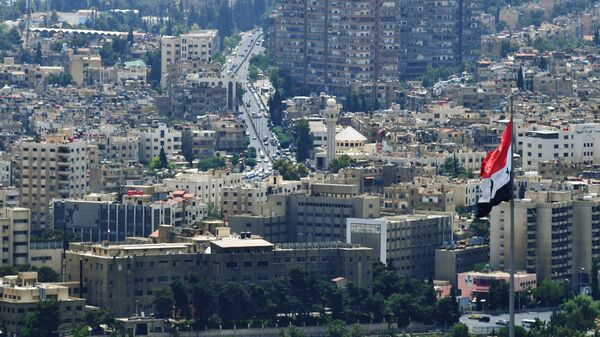Sputnik discussed Saudi Arabia's involvement in Syria with Alpaslan Ozerdem, Professor of Peacebuilding and Co-Director of the Centre for Trust, Peace and Social Relations.
Sputnik: Saudi Arabia already announced it had contributed money for a stabilization project which Damascus dubbed a ‘destabilization plot' that could prolong the conflict. How justified are the Syrian government's concerns?
Alpaslan Ozerdem: It's not very too far — 'destabilization fund', because I think in the long-term the decision by Trump will have a distabalizing factor in the region because in the current environment, on the one hand, you have Iran, Qatar and Turkey, and on the other hand, you have Saudi Arabia and the United Arab Emirates — a really sensitive balance of power. So a greater engagement by Saudi Arabia and the Emirates in terms of providing such funds in Syria, I think, will have some negative ramifications in the mid to long-term.
READ MORE: Saudi Arabia Bars Syrians From Making Hajj Pilgrimage — Ministry
Sputnik: Heather Nauert said that the withdrawal of aid did not represent any lessening of US commitment to US strategic goals in Syria, but what is the ultimate US strategy now for Syria? What's your take on it?
Alpaslan Ozerdem: The US has been rather messy with its foreign policy towards Syria, and I don't think there is one, and if there is one, we would like to know what that is, because it's changing on a daily basis and it's rather difficult to get at the moment. My worry is that by involving other regional actors, this can easily turn into a proxy war, and the more actors get involved in the Syrian war, the more difficult it will be to resolve. So I think it's just a matter of having money, I wonder whether that will be really worthwhile.
READ MORE: US Wants Saudi, UAE, Jordanian Military Presence in Syria — Kurdish Politician
Sputnik: In what position will both these new developments put other interested parties like Iran, Israel, Turkey and Russia, especially considering the latest proposal to establish a four-format dialogue and that's obviously with the Russia, France, Germany and Turkey on Syria, that was announced from the recent meeting between President Putin and Chancellor Merkel over the weekend, what are your thoughts?
Alpaslan Ozerdem: First it's important to try to find the pathways of dialogue to resolve the problem. This is what we need to see for Syria, not views and policy changing on a daily basis. You're not going to be able to deal with such a protracted conflict with many actors by just, sort of, sending a tweet saying, that we decided for the Gulf countries to pick up the bill for the stabilization fund.
This is not what a serious country should do, such developments like you've just mentioned. They need to be supported and there needs to be a coordinated effort, but what we see at the moment that the US is just (promoting) a more ad hoc and (offers) a knee-jerk reaction in coming up with daily policies, and it's very difficult to establish an environment of dialogue and try to transform the conflict.
So this is really my concern in a way, and unless the US is on board with such activities, it will be difficult to implement them. But the US is almost passing the responsibility to other actors with some serious interest in Syria and the region in general. What we need right now is a natural third-party intervention; that neutrality would (foster) trust and confidence in the process. So I really think for Saudi Arabia and for the Arab Emirates to be the part of the picture will only siply complicate the matter.
The views and opinions expressed by the contributors do not necessarily reflect those of Sputnik.

